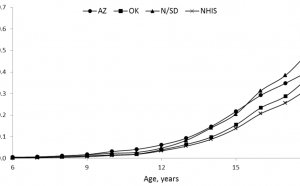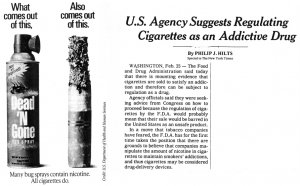
History of tobacco Regulation
|
National Commission on Marihuana and Drug Abuse THE BAN ON ADVERTISING
Both the U.S. Public Health Service and Federal Trade Commission have annually reported findings to Congress since passage of the cigarette labeling law. The FTC recommended that the Act should be amended to: "Warning: Cigarette Smoking Is Dangerous to Health and May Cause Death From Cancer and Other Diseases." Additionally, the FTC recommended legislation to require the same warning to appear in all cigarette advertisements and to require statements of tar and nicotine content on all cigarette packages and in all advertising. Legislation to accomplish these objectives as well as the following were recommended by the FTC: Cigarette advertising on television and radio should be barred entirely. Alternately, cigarette advertising on television and radio should be limited as to hours in which it may appear; the extent to which it may appear; and the types of programs on which it may appear; Increased appropriations, should be made to the Department of Health, Education, and Welfare for education of the public (especially young people) as to the health hazards of smoking; Appropriations should be made for research under the direction of the National Institutes of Health on the development of less hazardous cigarettes.
"By 1969, the stage had been set for a showdown over cigarette advertising and promotion" (Wagner, 1971: 190). The U.S. Government was increasing its efforts to discourage the sale of cigarettes. Post office trucks carried posters: "100, 000 Doctors Have Quit Smoking." The Surgeon General continued to release reports about the adverse health effects of smoking. Dr. Daniel Horn, director of the National Clearinghouse for Smoking and Health, was urging doctors to deliver antismoking appeals to patients in their offices. Movie personalities had become involved in the American Cancer Society's campaign called I.Q. (for "I Quit") that passed out lapel buttons and dispatched public speakers around the country to discourage the habit. Doris Day, Debbie Reynolds and Lawrence Welk refused to allow tobacco companies to sponsor their TV shows. Two ad agencies-Ogilivy and Mather and Doyle Dane Bernbach-and a few radio and television stations would not accept cigarette business. Several magazines did not accept cigarette advertising as a matter of principle: Reader's Digest, the New Yorker, and the Saturday Review. The Christian Science Monitor had never carried cigarette ads; the Boston Globe announced in May, 1969 that it would no longer accept such advertising "because accumulated medical evidence has indicated that cigarette smoking is hazardous to health" (Wagner, 1971: 220). In April 1969, a few weeks before the House Interstate and Foreign Commerce Committee was scheduled to open hearings on the FTC proposals, a series of bills were introduced in the House by representatives of tobacco producing states. One such bill, H.R. 7177, co-sponsored by all eleven of North Carolina's House Delegation, proposed "to establish a comprehensive Federal program to deal with cigarette labeling and advertising with respect to any relationship between smoking and health." Identical measures were introduced under the sponsorship of congressmen from Virginia, Maryland, Kentucky, and Florida. Some accounts of the activity on Capitol Hill during this period attribute these bills to the tobacco interests' intention "to prevent strengthening of the warning label and make permanent the ban on state and Federal regulation of cigarette advertising, which was due to expire on June 30. Passage of this legislation was the best tobacco interests could have hoped for under the circumstances" (Wagner, 1971: 205). After testimony from both sides, the House Committee approved a stiffer health warning but prohibited regulatory action on cigarette advertising for six years and in other ways generally upheld the status quo. The Senate, Commerce Committee, on December 5, 1970, voted out a bill banning cigarette commercials from the air as of January 1, 1971. The FTC was prohibited from acting on cigarette ads in newspapers and magazines until the middle of 1972. The labeling provision in the Senate bill was weaker than that established in the House-voted measure, and the bill also precluded cigarette regulatory action by the fifty states and local governments. In a session on December 12, a floor amendment was introduced which loosened the Committee's proposed restriction on the FTC by allowing the agency to require health warnings in advertising as of July 1, 1971. The bill also authorized the FTC to move sooner if it found that tobacco companies were switching from broadcast to print advertising so massively that it could be considered a " gross abuse." This bill also approved a new required health warning for cigarette packages"Warning: Cigarette Smoking Is Dangerous to Your Health." After Senate passage, the measure still had to -pass a joint Senate-House Conference Committee where important differences between the two bills had to be reconciled. The bill that emerged from conference differed only... |
VIDEO REVIEWS
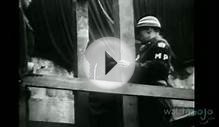
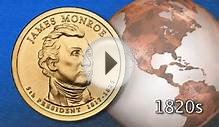
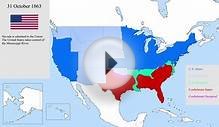
Share this Post
Related posts
History of tobacco use in American
(Adapted from Tobacco Timeline by Gene Borrio.) The native people of the Americas considered tobacco a gift from the Great…
Read MoreHistory of tobacco in the United States
600 BC First tobacco plant grows in the Americas 1 BC American inhabitants begin smoking tobacco 1492 Columbus finds tobacco…
Read More
